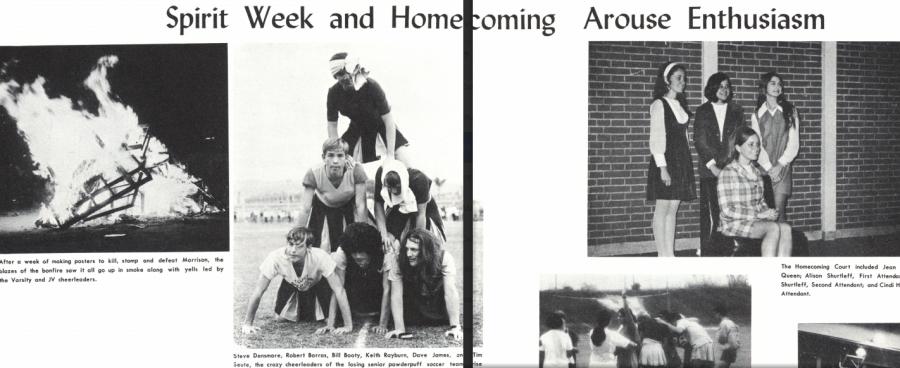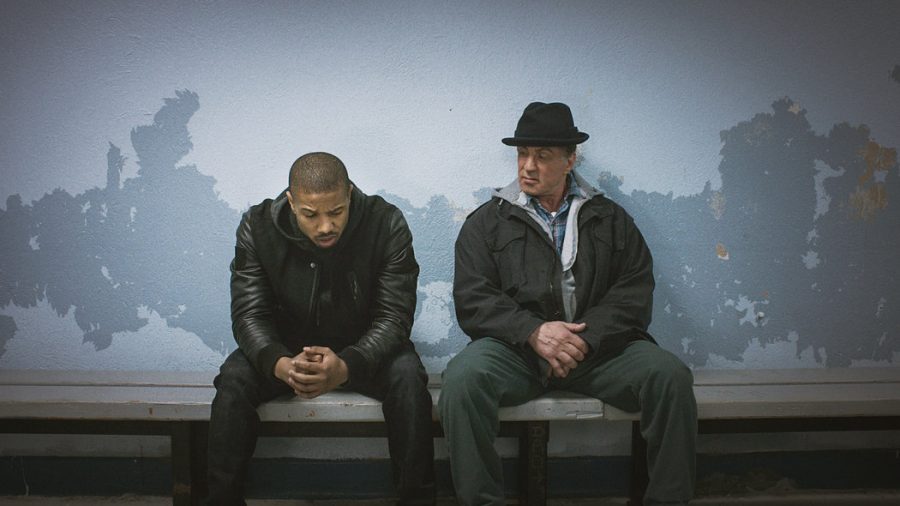The Blue & Gold takes a look at how birth order and family roles play a part in how you turn out.
Oldest Child
By Alex G.
First-born children are 16 percent more likely than everyone else to attend college or university, according to Understanding Society, The UK Household Longitudinal Study. Statistics don’t lie–firstborns are more responsible and successful than their younger siblings.
First, a disclaimer. I’m a first-born, and from my perspective as the eldest, I feel my younger brother is often a lot more childish than I had been at the same age.
I also felt a vague sense of injustice. Being first born can be unfair, as your sibling(s) get to do all the things you were not allowed to do when you were their age. My parents never allowed me to watch any movies they deemed too scary for me when my brother started watching CSI at age two.
TJ K. (10) thinks that he would be a “completely different person today” if he was not first born. As a second or third born, there is “not so much responsibility and there is more freedom… parents are more strict on the first kid which makes them more responsible”.
Firstborns are usually more successful in life—after all, all 12 men who walked on the moon were either eldest or only children. Notable first-born women include: Angela Merkel, Hillary Clinton, Oprah Winfrey, JK Rowling, and Beyoncé.
Why are first-born kids more successful? Parents tend to spend more time taking care of their firstborns. This attention doesn’t usually evaporate after other children are born either, and that extra attention may equal a certain character trait that encourages responsibility.
The second theory is that if a child is treated like they are younger he/she will mature more slowly. So older siblings, who are given responsibilities, tend to mature more quickly than their younger siblings.
Responsibility plays a key role in the life of a first-born. Amy L. (10) has “to be a good role model for [her] brother.” Sometimes being first-born will lead to parents thinking “that everything is [your] fault” and not your sibling’s. But sometimes, it is a privilege being the oldest: “my grandparents think I’m always right,” says Amy.
In a 2007 study by Petter Kristensen, a professor at the University of Oslo, found that firstborn children scored higher on IQ tests than their younger siblings. However, if the firstborn child had died during childhood or infancy, the second child would score just as high as the true firstborns. This seems to prove that firstborn children are not born with a high IQ. They earn it!
Being first born means developing a sense of responsibility early in childhood. Comparing myself to my younger brother, I can see the differences. When I was a sixth grader, I knew more than my brother does now and was more mature than he is now. So, despite the possible setbacks of being firstborn, it really does help you develop a sense of level-headedness and maturity—qualities which will undoubtedly push you towards success in the future. So, you and I might as well appreciate being the first one of your siblings to be sent onto this earth.
Middle Child
By Carol C.
Sometimes I hate being the middle child. Getting all the hand-me-down dresses from my older sister who always got new ones. Feeling pressured to memorize the Three Character Classic just because my younger brother could already recite it. And being ignored by my older sister at school whenever I said “Hi!” in the hallway.
Although my parents didn’t expect any more from me than from my siblings, the academic expectations that go with being the middle child are high. Growing up, I’ve always felt pressured to catch up with my sister in everything and succeed in whatever she’s failed at while making sure that my brother doesn’t catch up with me.
Although this is less of an issue now that we are older and have different interests, I can still recall how in Lower School, I would plant myself right next to my sister at cram school and tried to learn whatever that she was learning. So perhaps, this is why some people see the middle child as being ambitious and even, overly aggressive. Middle children tend to be unsure of their role in the family and as a result work hard to carve a spot.
But not all middle children conform to this stereotype. “I think my parents don’t have as many expectations for me as they do for [my sisters] Anne and Becky,” Meghan R. (12) says. “Being a middle child could have made me shy or not as ambitious as my other sisters more freedom than [them].”
What most middle children would say, however, is that being the middle child makes you more adaptable and ultimately more independent from your parents than their siblings.
“I think that being a middle child has made me more independent and capable of making my own decisions,” says Jonny X. (12). “I feel [that] my parents also naturally expect me to be more independent from them. Especially now that my older brother has gone to college, they think that I’m already capable of taking care of myself, so they spend more time watching over my younger brother.”
For Julia L. (10), being the middle child allows her to switch easily between being a leader and a follower. “I can take charge and assume responsibilities,” she says. “But sometimes, I just like to stand back and be a good follower.”
It wasn’t until I grew older that I realized being the middle child was the best possible outcome for me. Growing up, my parents trusted me more for I was neither as rebellious as my older sister nor as passive as my baby brother. Squeezed in the middle, I was just right.
But for me, the best part of being the middle child is perhaps that I never have to feel alone. I’ve grown up following my sister around and playing with my brother. Even now that my sister has gone off to college, I still have my younger brother to joke with, to kick around, or just to talk to every day at home.
Youngest Child
By Jocelyn C.
As the youngest of three siblings, what I’ve mostly gotten from others is that family life for me is a stroll in the park, a cruise down the lazy river, you name it. “Your parents should be easier on you!” they say. “I bet they spoil you.” And sure, there’s somewhat of a leniency on the babies of the family, but it’s not always true to the extent everyone thinks it is.
Being the baby in the family doesn’t necessarily mean parents or family just see past every little flaw had or mistake made. Actually, more often than not, these faults we have are instead highlighted and held up to our wonderful, fantastic elder siblings. Brendan W. (10) has had his fair share of being compared to his three older sisters. “Being the youngest is definitely very pressuring. There are lots of expectations for me because my sisters set a standard, and I’m wanted to do even better,” he says. Having successful older siblings rids you of any excuses to fail; seeing as they’re doing fine, why shouldn’t you be on the same path?
Fortunately, though, family isn’t always (or ever, hopefully) a fight-to-the-death competition between the children. “After all, it is nice being the youngest,” Brendan says. “You always have someone to talk to.” Cindy H. (12), the youngest to an older brother, says, “My brother’s always someone I can go to and ask for advice, whether if it’s college apps or anything, really.” Andrea W. (10) says, “I really like having an older sister because she helps me out when I need it, and she is someone I could just talk to about anything. For me, being the youngest is not a bad thing at all.”
David W. (11) has felt both sides of the baby child coin: “My siblings, along with other family friends, used to team up and make fun of me. Older siblings can be so mean, and I was so sad! But at the end of the day, they are my big sister and my big brother. They look after me and take care of me. I love having older siblings because I can look to them whenever I’m in trouble or having a hard time.”
As the youngest child I’ve always subconsciously looked up to my siblings, constantly seeking their approval but not quite knowing it. I never realized how much their opinions mattered to me until they clashed with mine and I’d take a step back and see it from (what I’d thought was) their older, wiser viewpoint. And I guess this is how it’s summed up for me: I very well understand the pressures of having to follow my siblings’ footsteps (whether if they are academic footsteps or not), and I’ve also felt the pains of being endlessly put down and teased by my brother growing up.
But a switch in my perspective from thinking of my brother as my childhood bully or my competition has made me understand that having older siblings gives you insight on so many things. You’re humbled with the knowledge that the world doesn’t revolve around you but instead revolves around the coexistence of others’ happiness, troubles, worries, and thoughts. You have access to a different world from how you see it. They’re there when you need them and they push you through the different stages of life they once have gone through. Following the dotted lines of their paths might not be such a bad thing.
Only Child
By Bryan S.
I am the only child in my family. Should I panic? When people think of an only child, they think of a loner, who is a misfit and is always, always selfish.
I don’t buy into this common assumption, but I do recognize that being alone can be hard at times. Growing up as an only child, I longed for a sibling to argue with, to share my memories with, and look up to or down on! I longed for attention even though I had all the attention in the world. But then I realized that although the only child may be more selfish than other kids, we have special traits that no other family member can boast about.
In many cases the character of the only child is actually strengthened. This is because there is no one to lean on for guidance and plenty of time for self-reflection.
Nevertheless, many only children believe that only if they had a brother or sister, then their lives would be so much livelier. Paul C. (11), an only child, “used to wish [he] had siblings, but now [he’s] glad nobody’s around to bother [him].” He also believes that he’s “kind of introverted, but not to the point of being really quiet” and that being alone has “contributed to [him being] a lot more self-dependent because there aren’t any older sibling(s) that [he] can depend upon for experience and nobody else is there to help [him] out either.”
Maybe it’s Paul’s self-reliance and independent thinking that made him the outgoing vice president in the class of 2016. Likewise, Anjoli G. (11), one of the stars of Les Miserables, isn’t disappointed in being an only child. “I used to wish I had siblings because it was pretty lonely growing up as an only child.” Now she realizes “having good friends is just as good as siblings.” She rejects the idea that the only child is antisocial. “I don’t consider myself antisocial. I grew up talking to my parents and that definitely helped me develop earlier.” Instead of turning to siblings for friendship, Anjoli developed close relationships with her parents.
Alex C. (11), head of Remote English Mentoring and a StuGov committee member, wishes he had a lively home environment and admits he is “fairly antisocial”. Yet Alex still “likes to talk to people, but [feels] awkward.” At home, Alex “[doesn’t] talk very much…and as a result [sticks] to his computer for most of the day.
Being an only child has its “pros and cons,” says Alex. As for my case, I believe that being by myself has been quite boring but has actually given me time to think, when I otherwise wouldn’t. Although, I haven’t nearly matured and am quite childish at times, I still believe it has aided me in my discipline and growth as an adolescent.
Photo Courtesy of Brendan W.


![[KATHERINE MA/THE BLUE & GOLD]](https://blueandgoldonline.org/wp-content/uploads/2021/04/photo.png)





DanielleMarcus • Mar 23, 2015 at 12:50 pm
This article no doubt every child can relate with it, as I being the oldest I totally agree with the point that your sibling(s) get to do all the things you were not allowed to do when you were their age. As when I was 12 my last entry for home at night was 8pm and my siblings have there time at 9 pm. Have a look at http://www.superpages.com/bp/Naples-FL/Omicron-Granite-L2189119360.htm.